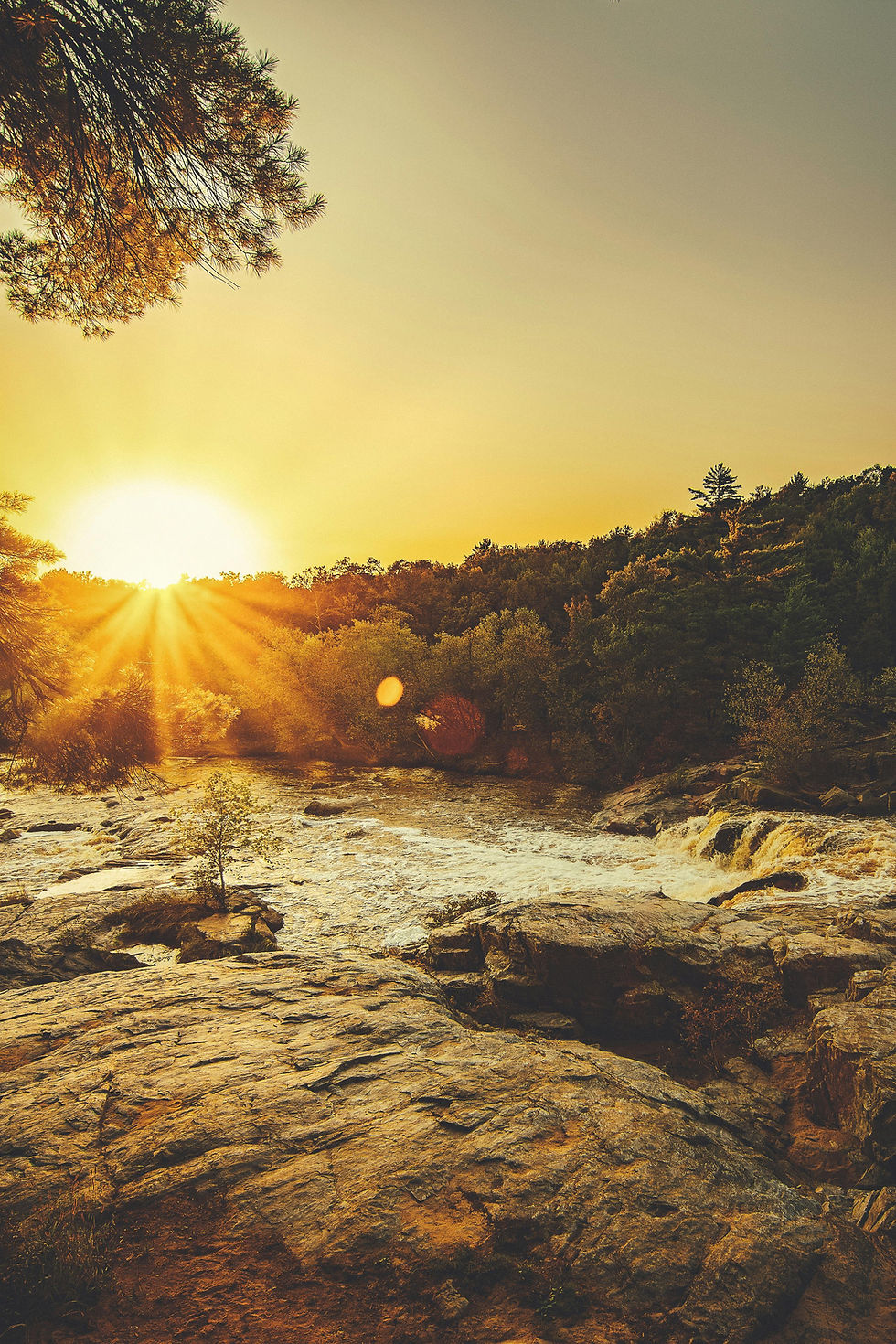Would you rather: Burn your skin or bleach the Great Barrier Reef?
- Maud Marchal Dombrat

- Jun 17, 2022
- 3 min read
While protecting our skin from the dangerous sun rays is necessary, the sunscreens we usually can buy in our supermarkets have a devastating impact on our environment.
Imagine a hot sunny day, you are lying down at the seaside. The sun is strong, but you are responsible and you have covered yourself with sunscreen to avoid pretty unpleasant sunburns.
However, while protecting your skin is a necessary thing to do, it has an unexpected tragic impact on the environment.
Your sunscreen and the corals
Unfortunately, while you are showing off your best breaststroke to your friends, the chemicals of your sunscreen are discharging in the ocean. Chemicals like oxybenzone can seep into the water and then be absorbed by the corals. These substances can disrupt the reproduction and growth cycle of corals, thus leading to their bleaching. Each year, nearly 14,000 tons of sunscreen end up in the oceans. Besides the well-known Great Barrier Reef, the bays of Hawaii, the Virgin Islands of the United States as well as in Israeli reefs are especially vulnerable.
On the 1st of May 2018, Hawaii became the first state in the US to pass a bill to ban the sale of sunscreen containing oxybenzone and octinoxate. It should take effect by January 1, 2021.

Photo by Francesco Ungaro from Pexels
What are the alternatives?
Does it mean we should give up on caring for our skin? Despite the impending ban in Hawaii, we are not expected to stop protecting ourselves. The good news, there are safer alternatives for our skin AND for the planet. According to Haereticus Environmental Lab -a non-profit scientific organization dedicated to increasing the scientific, social, and economic knowledge of natural environmental habitats- the ingredients we must avoid at any cost are the following:
Any form of microplastic beads | Para-aminobenzoic acid (PABA) |
Any nanoparticles like zinc oxide or titanium dioxide | Methyl Paraben |
Ethyl Paraben | |
Propyl Paraben | |
4-methylbenzylidene camphor | Butyl Paraben |
Octocrylene | Benzyl Paraben |
Triclosan |
Some websites offer pre-made lists of eco-friendly sunscreens, which can be helpful, since checking all the ingredients can sometimes be time-consuming. For example, Haereticus Environmental Lab publishes every year a list of sunscreen products not harmful to the environment.
If you are not satisfied by those options and feel inhabited by an inner chemist, there are also plenty of sunscreen recipes on the internet. We would simply recommend you to check carefully the efficiency of the recipe you may choose. Some contain ingredients such as clove, which can irritate the skin. Nevertheless, creating your own sunscreen can be a great option, as long as you do your research before applying.
A plea for the parasol
You don’t want to buy expensive sunscreen?
You don’t feel like making your own?
We have the last option for you.
While the parasol is definitely out of fashion in most of the west, it is still in use in countries like Japan. It might be impractical if you are planning to run a marathon or, more likely if you usually work outside, but if you can afford it, it is probably the best way to protect your skin efficiently while being both 100% chemical-free and zero waste.

Claude Monet, Public domain, via Wikimedia Commons
Indeed, unlike any kind of sunscreen, homemade or not, the parasol does not require the use of any plastic bottles or the import of fancy ingredients coming from the other side of the world.
Since no one can deny the efficiency of such an eco-friendly tool, what about bringing back to fashion a bit of the 19th century?
Sources:
“Les crèmes solaires sont nocives pour les océans (mais des alternatives existent)” Retrieved from
“Hawaii is about to be the first state to ban certain sunscreen sales to protect its coral reefs” Retrieved from https://edition.cnn.com/2018/05/02/health/hawaii-bans-sunscreen-chemicals-trnd/index.html
Haereticus Environmental Laboratory, https://haereticus-lab.org/



Comments